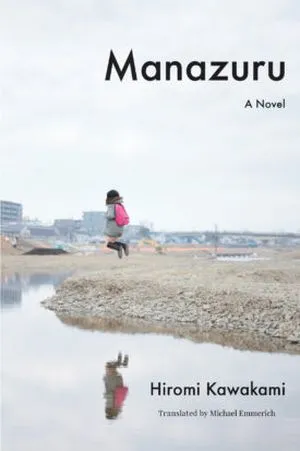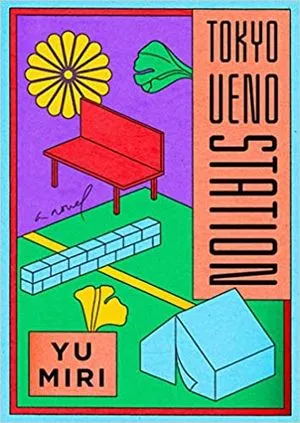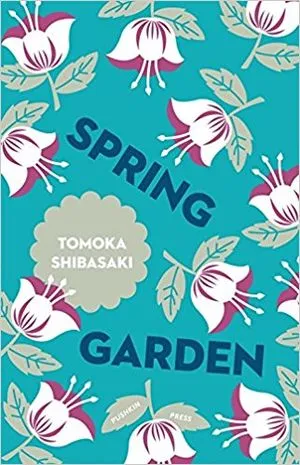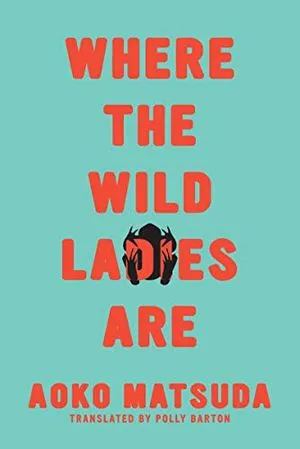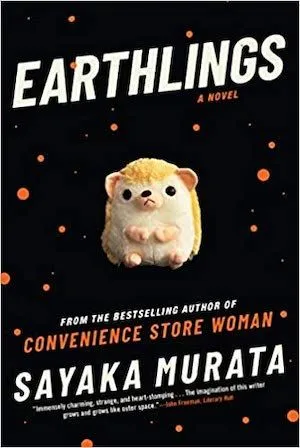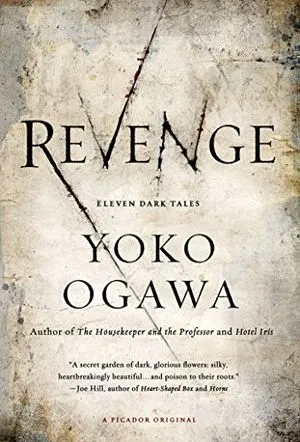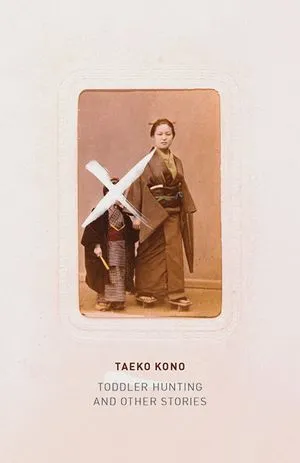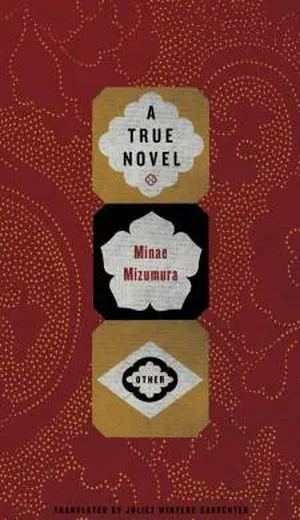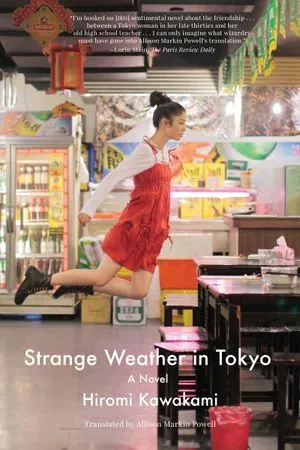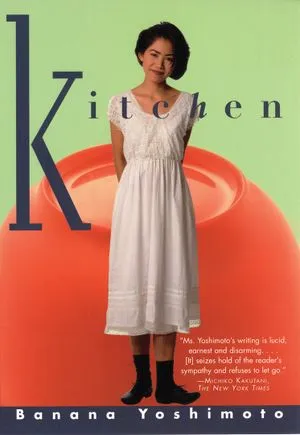
20 Must-Read Japanese Books by Women in Translation
I’ve long loved Japanese literature and over the years with each passing August I’ve picked up more and more books translated from Japanese for Women in Translation Month. Hiromi Kawakami, Yuko Tsushima, Yoko Ogawa, and so many others have become some of the authors I recommend and return to most often. Here I’ve collected some of my contemporary favorites, 20 must-read Japanese books by women in translation. And if you’re looking to read a book on Japanese translation itself, I highly recommend Polly Barton’s brilliant and stunning reflection of language and life, Fifty Sounds.
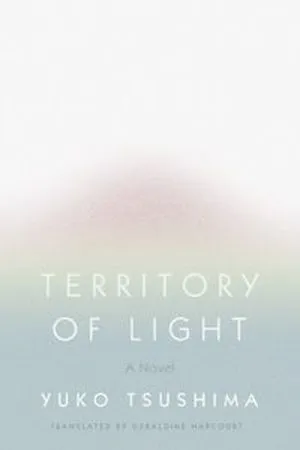
Territory of Light by Yuko Tsushima, Translated by Geraldine Harcourt
Territory of Light follows a woman starting her life over again with her young daughter after being left by her husband. Her new Tokyo apartment is awash in light but she finds herself falling further into darkness and depression. As time passes, she confronts her new reality and makes plans for the future. It is a painful and honest journey, one that will ring true to many who have had to remake their life in a new image after loss, but it’s so beautifully told. The translation is particularly exquisite. “At once tender and lacerating, luminous and unsettling, Yuko Tsushima’s Territory of Light is a novel of abandonment, desire, and transformation.”
Manazuru by Hiromi Kawakami, Translated by Michael Emmerich
Twelve years have past since Kei’s husband disappeared and left her alone with their 3-year-old daughter, Momo. Still haunted by the disappearance, Kei keeps returning to the seaside town of Manazuru to remember and connect to something just out of reach. Manazuru is a beautifully subtle and profound story of loss and memory. There’s this restless quality to the novel that’s utterly gorgeous and — as is usually the case with Kawakami — there’s a strange, unusual element that I wouldn’t dare spoil for you! Find your way into the other works of Hiromi Kawakami with this reading pathways post.
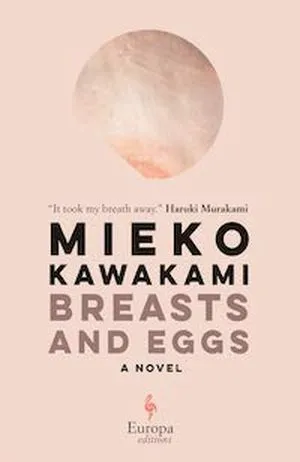
Breasts and Eggs by Mieko Kawakami, Translated by Sam Bett and David Boyd
Published in Japan in 2008, Mieko Kawakami’s novella Breasts and Eggs won the prestigious Akutagawa Prize and the praise of authors like Yoko Ogawa and Haruki Murakami. This newly expanded novel is Kawakami’s first to be published in English and has already been hailed as a “feminist masterwork.” Breasts and Eggs is an intimate and striking novel of women’s bodies and agency in modern Japan, following three women — sisters Natsu and Makiko and Makiko’s daughter Midoriko — as they reflect on and determine their futures.

The Lonesome Bodybuilder: Stories by Yukiko Motoya, Translated by Asa Yoneda
I loved this collection of strange and wonderful stories. Winner of the Akutagawa Prize and the Kenzaburo Oe Prize, Motoya is a magician — she takes mundane, daily life and just twists it into these amazingly clever and fantastic tales. In these stories, a newlywed notices that her husband’s features are sneakily sliding around his face to match hers, umbrellas are more than they seem, women are challenging their boyfriends to duels, and you might want to reconsider dating the girl next door.

The Factory by Hiroko Oyamada, Translated by David Boyd
In Hiroko Oyamada’s English language debut The Factory, three characters find work at a sprawling industrial factory. They settle into their new jobs and they soon realize that their lives have slowly (or is it quickly? Time doesn’t seem to make sense any more) been taken over by the factory. Reality dissolves, strange creatures begin to appear, and the list of unanswered questions about this unusual factory grows longer. Winner of the Shincho Prize for New Writers.
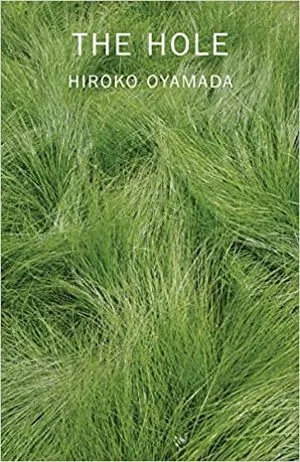
The Hole by Hiroko Oyamada, Translated by David Boyd
The Hole is a surreal and atmospheric novel reminiscent of Lewis Carroll, David Lynch, and Hayao Miyazaki’s My Neighbor Totoro. Asa and her husband move to a remote home in the countryside after her husband transfers jobs. A chance encounter with a strange creature leads Asa to a series of bizarre circumstances as she tries to find her place in this new world. It’s especially impressive to see Oyamada create such a sensory rural novel, full of the lethargic, sticky heat of summer and the buzz of cicadas, after seamlessly crafting the industrial setting in her debut novel The Factory, also translated by David Boyd.
The Sky Is Blue With a Single Cloud by Kuniko Tsurita, Translated by Ryan Holmberg
Drawn & Quarterly has the most fantastic offerings of literature in translation and so I was thrilled to hear about The Sky is Blue with a Single Cloud, the first collection of stories by the “visionary and iconoclastic feminist cartoonist” Kuniko Tsurita to be available in English. Tsurita was the first and only regular female contributor in the legendary alt-manga monthly Garo and this collection reclaims her historical and literary importance. I particularly loved Gabrielle Bellot’s piece in The Atlantic about the collection — in her thoughtful review, Bellot discusses the ways in which Tsurita broke both gender and genre norms in her art.
Tokyo Ueno Station by Yu Miri, Translated by Morgan Giles
Kazu is a ghost that haunts Ueno Park — where he had previously lived in one of its homeless villages until the time of his death — but when you’ve finished this elusive and devastating novel, Kazu will begin to haunt you too. Described as a work of “post-tsunami literature and a protest against the 2020 Tokyo Olympics” and a novel for our times for its scathing critiques of the imperialist and capitalist systems, Tokyo Ueno Station hits even harder in the wake of the pandemic as vulnerable populations worldwide have been impacted disproportionately and the gulf between rich and poor grows at alarming rates.
Spring Garden by Tomoka Shibasaki, Translated by Polly Barton
Spring Garden follows Toro, a divorced man living in an older apartment complex that’s about to be demolished in a rapidly urbanizing Japan. Toro is drawn into an unusual relationship with Nishi, an artist living upstairs who tells him about her interest in the sky-blue house next door to the complex. The house soon becomes symbolic to both Taro and Nishi “of what is lost, of what has been destroyed, and of what hope may yet lie in the future for both of them.” This poignant novella of memory and loss left me stunned. Part of Pushkin Press’s incredible Japanese Novellas Series, which I’ve found to be a great resource for discovering new authors.
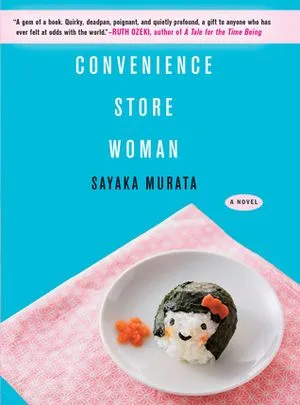
Convenience Store Woman by Sayaka Murata, Translated by Ginny Tapley Takemori
Keiko Furukura has worked at a convenience store for 18 years, comfortable in the patterns and norms of the store and its customers but aware of her family and society’s general disappointment in her. When a young man enters her life she has the chance to change everything — if she wants to. From one of Japan’s most exciting contemporary writers, Convenience Store Woman is a dark, funny, and compelling novel with a heroine that defies convention and description.
Where The Wild Ladies Are by Yoko Matsuda, Translated by Polly Barton
This surprising and clever collection of stories draws inspiration from traditional Japanese ghost and yōkai tales, many of which have been immortalized as kabuki or rakugo theatrical performances. Strange, poignant, and at times delightfully funny, these feminist retellings explore and critique roles and expectations for women in contemporary Japan and beyond. I’d recommend it to fans of The Lonesome Bodybuilder: Stories by Yukiko Motoya, translated by Asa Yoneda
Earthlings by Sayaka Murata, Translated by Ginny Tapley Takemori
In this hotly anticipated followup to Convenience Store Woman, Sayaka Murata and translator Ginny Tapley Takemori return with another strange and unconventional novel of what it means to be an outsider. Eleven-year old Natsuki has always felt different, but finds solace in her plush hedgehog Piyuut and summers with her cousin Yuu. The pair come to believe that they are aliens (as is Piyuut, from the planet Popinpobopia) and this belief and their bond begins a bizarre and at times shocking coming-of-age story. Like Convenience Store Woman, Earthlings looks closely at societal expectations and pressures to conform to dizzying effect.
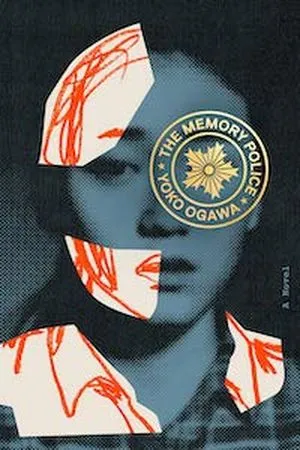
The Memory Police by Yoko Ogawa, Translated by Stephen Snyder
I’m in awe of Yoko Ogawa and always excited to see her newest project — her range is incredible, from books like her touching novel The Housekeeper and the Professor to her terrifying collection of stories Revenge: Eleven Dark Tales, and now The Memory Police. On an unnamed island, objects are disappearing. First it’s small things that go missing and many of the people on the island are unaware of the changes. But it soon escalates and the citizens who can recall the lost objects live in fear of the Memory Police. Ogawa’s writing is always stunning — haunting in its own spare, powerful way — and The Memory Police is a masterful take on an Orwellian novel of state surveillance.
Revenge: Eleven Dark Tales by Yoko Ogawa, Translated by Stephen Snyder
Revenge is an intricately interwoven collection of stories about grief, death, and yes, revenge, where each story stands alone but also connects in surprising ways to its fellows. This layered effect coupled with the subtle calm of Yoko Ogawa’s prose in a thrilling translation by acclaimed translator Stephen Snyder makes the disturbing elements of these stories feel even more chilling. If you like Revenge, I would recommend Ogawa’s The Diving Pool: Three Novellas and Hotel Iris, both also translated by Snyder.
Toddler Hunting And Other Stories by Taeko Kono, Translated by Lucy North and Lucy Lower
Kenzaburo Oe calls Taeko Kono — winner of Japan’s top literary prizes: the Akutagawa, the Tanizaki, the Noma, and the Yomiuri — “the most carnally direct and the most lucidly intelligent woman writing in Japan,” and it’s hard to disagree after reading the unsettling and striking stories in Toddler Hunting. Pleasure and pain mix in the lives of the women and girls of Taeko Kono’s stories, as scenes of sadomasochism and obsession veil her sharp attacks at the ideals of motherhood and femininity.
A True Novel by Minae Mizumura, Translated by Juliet Winters Carpenter
While this much loved and admired novel is often described as a loose retelling of Emily Brontë’s Wuthering Heights set in Japan, A True Novel is so much more than that. First serialized in the monthly literary journal Shincho and published in two volumes, A True Novel is a rich and and masterfully crafted story of lovers set against a fascinating and important moment in Japanese history. It is a powerful and haunting examination of Japan’s post-war westernization and its struggle to retain its identity in a moment of economic upheaval. And new from Minae Mizumura and translator Juliet Winters Carpenter, I’d also recommend An I-Novel, a semi-autobiographical and “formally daring novel that radically broke with Japanese literary tradition” when it was published in 1995.
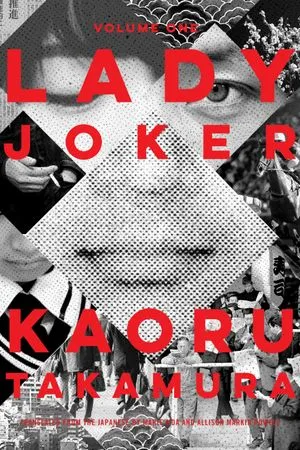
Lady Joker Volume 1 by Kaoru Takamura, Translated by Allison Markin Powell and Marie Iida
Kaoru Takamura has been hailed as “one of Japan’s great modern masters” and since its 1997 publication, Lady Joker has become a cultural touchstone in Japan, taught in classrooms and adapted for film and television, with millions of copies sold. It was inspired by the unsolved and real-life Gilco-Moringa kidnapping case perpetrated by “the Monster with 21 Faces.” An immense and extraordinary feat of writing and translation that has been long-awaited in English, Lady Joker is at once a thriller and a sweeping cultural history of Japan, a love story and a work of poignant social commentary. The second volume is set to be published in summer 2022.
Strange Weather in Tokyo by Hiromi Kawakami, Translated by Allison Markin Powell
Shortlisted for the Man Asian Literary Prize and the International Foreign Fiction Prize, Strange Weather in Tokyo is a sweet and poignant story of love and loneliness. Tsukiko is 38, lives alone, works in an office, and is not entirely satisfied with her life when she runs into a former high school teacher, who she knows as sensei, at a bar one night. They talk and over time this hesitant intimacy grows into something more. It’s a “moving, funny, and immersive tale of modern Japan and old-fashioned romance” while also managing to be this quiet, understated beauty of a book.
Kitchen by Banana Yoshimoto, Translated by Megan Backus
Banana Yoshimoto is one of the most popular Japanese novelists around the world and despite her extensive catalog, her debut novel Kitchen remains her best-loved book. First published in 1988, Kitchen caused such a frenzy that the media dubbed the buzz around her work “Bananamania” and its English translation by Megan Backus followed in 1993 — published with a companion story “Moonlight Shadow.” A beautiful and tender story of transience and love, Kitchen examines the exhaustion of young people in contemporary Japan and the ways that tragedy shapes a person’s life through the stories of heroine Mikage and her friend Yoichi and his mother, who take Mikage in when her grandmother dies.

The Emissary by Yoko Tawada, Translated by Margaret Mitsutani
Yoko Tawada is one of the most fascinating writers of our time, writing stories, novels, poems, plays, and essays in both Japanese and German. Winner of the 2018 National Book Award for Translated Literature, The Emissary is her most recent novel. After an unnamed but possibly nuclear disaster, Japan has cut itself off from the rest of the world. Children are now born ancient and frail and rely entirely on their newly vigorous grandparents to care for them. In Tawada and translator Margaret Mitsutani’s gifted hands this dystopian meditation on mortality and modern Japan is both chilling and tender, haunting and hopeful.
Looking for even more recommendations? Browse our Japan archives.



